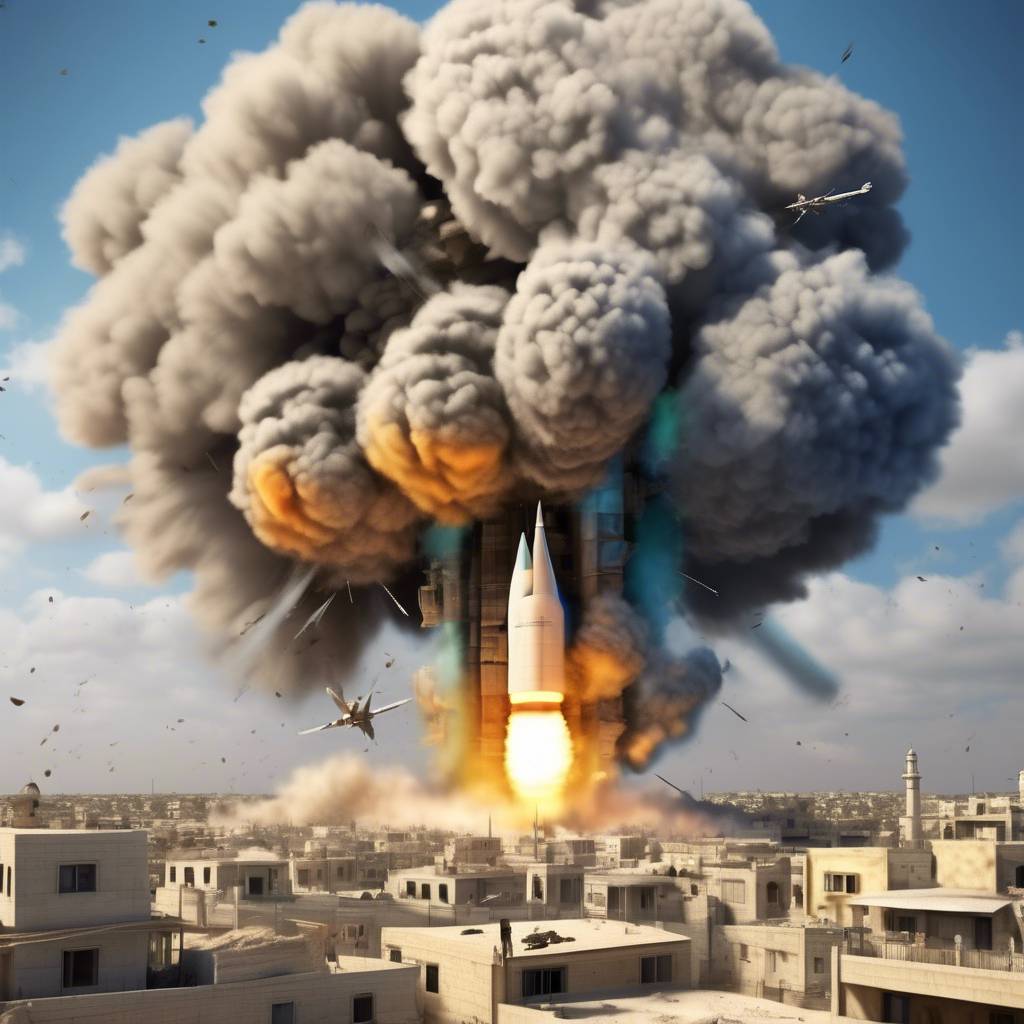The Israeli military conducted strikes in eastern Rafah in southern Gaza on Monday, despite a cease-fire proposal negotiated by Egypt and Qatar that Hamas had agreed to. The Israel Defense Forces announced the targeted strikes on Hamas terror targets in the region, while Israel’s war cabinet unanimously decided to continue the operation in Rafah to put military pressure on Hamas. This decision was made in order to advance the release of Israeli hostages and other goals of the ongoing conflict. The IDF spokesperson confirmed that the military was targeting the terrorist organization Hamas in eastern Rafah.
In response to Hamas’ cease-fire proposal, which fell short of Israel’s requirements, Israel agreed to send a working-level delegation to mediate negotiations. The conflict in Rafah began on Sunday when Israel initiated strikes in the region, resulting in the deaths of approximately 19 people in the densely populated city. The Israeli military urged around 100,000 Palestinian civilians to seek refuge in other southern Gaza cities that have experienced heavy damage from prior fighting. International pressure, including from key Israeli allies like the United States, has been mounting on Israel to avoid a full-scale invasion of Rafah. President Joe Biden initially condemned the idea of an invasion, calling it a “red line,” but later backtracked on potentially cutting off military aid to Israel.
The city of Rafah in southern Gaza is home to about 1.4 million refugees, with approximately 600,000 children among them, according to UNICEF. The ongoing conflict and military operations in the region have had a severe impact on the civilian population, especially on the children who make up half of the refugee population. The situation in Rafah highlights the humanitarian crisis unfolding in Gaza and the need for a peaceful resolution to the conflict between Israel and Hamas. The targeted strikes by the Israeli military in response to Hamas’ agreement to a cease-fire proposal indicate the complex and volatile nature of the ongoing conflict and the challenges in finding a lasting solution to the violence in the region.
The conflict in Rafah and the continued military operations by Israel in the region have raised concerns among international organizations and countries about the humanitarian consequences of the violence. The heavy civilian casualties and displacement of residents in Rafah underscore the urgent need for a cessation of hostilities and a comprehensive peace agreement between Israel and Hamas. The involvement of external mediators, such as Egypt and Qatar, in negotiating a cease-fire demonstrates the importance of international intervention in addressing the root causes of the conflict and finding a sustainable resolution. The situation in Rafah serves as a reminder of the ongoing suffering of the Palestinian people and the need for diplomatic efforts to bring an end to the cycles of violence and destruction in the region.
As the conflict in Rafah continues to escalate, it is essential for all parties involved to prioritize the protection of civilians and adhere to international humanitarian law. The targeting of civilian areas and infrastructure in the region must be condemned, and efforts should be made to ensure the safety and security of the residents of Rafah and other affected areas in Gaza. The international community plays a crucial role in supporting diplomatic efforts to de-escalate the conflict and facilitate negotiations for a durable peace agreement. The situation in Rafah highlights the urgent need for a political solution to the Israeli-Palestinian conflict and underscores the importance of international cooperation in achieving a just and lasting peace in the region.









